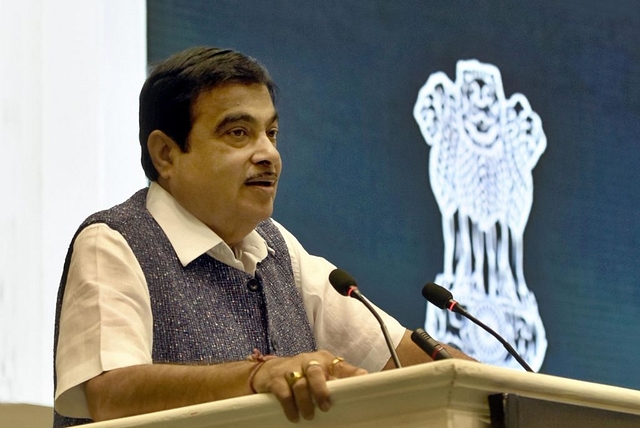
Nitin Gadkari: Road Safety Must Be Top Priority
Nitin Gadkari proposes a slew of measures to achieve safer roads, and urges states to play a key role.
Road Transport and Highways Minister Nitin Gadkari has proposed a three-day mandatory training for engineers of the ministry, National Highways Authority of India (NHAI), Public Works Department (PWD) and various agencies related to road construction.
Aimed at generating awareness about road safety and reducing road accidents by half by the year 2025, the minister said that reducing accidents is not a gradual process, and every stakeholder should treat it as top priority with immediate effect.
He gave the example of Sweden where there is zero tolerance for road accidents.
Addressing the National Road Safety Council meeting, Gadkari asked state governments to motivate people towards achieving safer roads, while suggesting the need for involving NGOs in this area.
It was attended by transport ministers from Andhra Pradesh and Bihar, DGPs or their representatives from states/Union territories (UT), and various other official and non-official members of National Road Safety Council (NRSC).
India is constructing 30 kilometres of roads everyday which is a great achievement during this pandemic time.
Underlining the role social media could play in spreading awareness about road safety measures, he said that there is a committee of MPs related to road safety, and requested all the MLAs to also focus on the issue of accident reduction in their constituencies.
Ministry of Road Transport and Highways has formed the NRSC to advise on all the matters pertaining to planning and coordination of policies and standards of safety in the road transport sector.
It will also help formulate, and recommend road safety programmes for implementation by the State Road Safety Organisation, besides suggesting areas for research and development to improve safety aspects in the road transport sector. This will include maintenance of road accident statistics and their analysis, to oversee and monitor at the central level the road safety measures undertaken by the state/UT agencies.
Road Safety Director Vivek Kishore explained in his presentation about the black spot rectification procedure and the status of rectification on national highways.
The Transport Minister from Bihar explained the various initiatives taken up by the state government like ‘Sanyukt Jaanch Dal’ (unified investigation agency) for road safety audit, automated driving training centre, upgrade of 40 hospitals to trauma centres and the awarding of ‘good samaritans’ to 434 people. Other members of NRSC gave suggestions about improving the road safety situation by taking various measures including changes in the law, etc.
The Minister of State Gen (Retd) V K Singh asked the states to enforce various measures as best practices in their states at their own level also. He assured all the members of NRSC that the suggestions submitted by them would be looked into and their implementation will be taken up accordingly.
According to the available data, robust ambulance services and highway patrol teams can reduce road deaths drastically as was evident in Tamil Nadu where road crash fatalities fell by 54 per cent in four years — from 17,218 fatalities in 2016 to 7,287 in 2020. While Rajasthan, Karnataka and Kerala are keen to adopt the Tamil Nadu model, Maharashtra on Tuesday announced that it will implement it.
Now the Road Transport Ministry and World Bank will propagate the TN model —identifying the exact cause of fatalities, ambulance reaching site within 13 minutes, rectifying crash spots and smooth coordination among various agencies — which others can adopt to check the number of road deaths. The southern state deploys ambulances after identifying accident-prone locations, which has reduced response time considerably.
India loses 415 lives per day in road accidents, the highest across the globe.